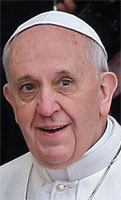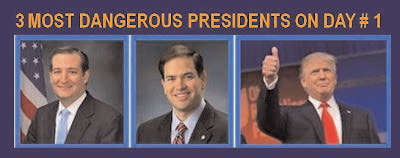
Had JF Kennedy not been prematurely eliminated by an assassin, he would have brought India-US relations to a new high, opines the author.
India was as much shocked as the rest of the world by the news of the tragic assassination of US President John F Kennedy in Dallas on November 22, 1963. Kennedy’s 50th death anniversary was recently observed, with the top leadership of the Democrats including President Barack Obama and former President Bill Clinton and his wife Hillary present on the occasion. There are many who believe that had Kennedy lived longer, India- US relations would have bloomed and taken a different direction.
During his brief tenure, besides food aid, there were several US projects that emerged including the Tarapur plant, IIT Kanpur and the Nagarjuna Sagar project in Andhra Pradesh. As veteran US diplomat Dennis Kux points out in his book, Estranged Democracies, Kennedy’s love for India began from his days as a Senator. When he became President in January 1961, Kennedy had brought India-US relations to an entirely new qualitative level from where they had been under the Truman and especially the Eisenhower Administrations. This was during the Cold War when India was seen to be closer to the Soviet Union.
It is interesting to understand the chemistry between Kennedy and Jawaharlal Nehru. Kennedy praised him in the State of the Union address on January 31, 1961; no other US President had done that for any Indian Prime Minister. Prior to the action in Goa, Nehru had paid his last visit to the US. BK Nehru, the then Indian Ambassador to the US writes in his Nice Guys Finish Second, that Kennedy wanted to have special relations with Pandit Nehru and broke protocol by receiving him when Nehru visited his private home at Hammersmith Farm. During their informal talks, while Kennedy tried to evoke some response from Nehru on the Vietnam issue, the latter remained silent throughout.

John F. Kennedy came to India’s rescue in the wake of India’s border dispute with China in 1962. “We should defend India, and therefore we will defend India if she were attacked,” he had said. His visit to India, made possible by John Kenneth Galbraith, US Ambassador to India during Kennedy Administration brought the two countries closer. Seen in the picture: – Extreme left: John Kenneth Galbraith, John F. Kennedy at the mikes, Vice President Lyndon B. Johnson (second from right) and Prime Minister of India, Pandit Jawaharlal Nehru (extreme right).
However, later Nehru told his private secretary MJ Desai, “Tell them, tell them not to go into Vietnam, They will be bogged down and they will never be able to get out”. BK Nehru observes that if only the Prime Minister had conveyed this to Kennedy, things might have turned out differently. Arthur M Schlesinger, a close aide to Kennedy, notes in his book, A Thousand Days, “Reminiscing about the meeting, Kennedy described it to me as “a disaster-the worst head-of-state visit I have had”. Kennedy’s vision of India had been much larger before the visit, than it would ever be again. Nehru obviously is in decline.” All hell broke loose when three weeks after Nehru returned to India, Goa was ‘liberated’ from the Portuguese on December 19, 1961. This was condemned by the US and the UK, while the Soviet bloc hailed it.
A resolution condemning India’s role was vetoed by the Soviet Union in the Security Council. Kennedy was miffed that Nehru did not discuss Goa with him. He wrote in a letter to Nehru on January 18, 1962: “One difficulty was, of course, that the action followed so soon after your visit. I had naturally hoped that the candor of our exchange might have extended to all of the problems with which we were mutually concerned. I confess to a feeling that we should have discussed this problem; it is at least possible that if we had talked about it, our efforts to help prevent a solution by force could have been more helpful.”
Kennedy ended the letter thus: “Meanwhile, you can count on me to do all that I can to ensure that any damage to our common interests is temporary… I believe we can and must get back on this high road, and I shall work steadily toward this end.” When Jacqueline Kennedy visited India in March 1962. Nehru moved her into his own house and played host as the US embassy was under renovation, according to then the US Ambassador Galbraith. According to the US Ambassador JK Galbraith the visit went off quite well. Months later, Kennedy kept his word when China attacked India on October 20, 1962, leading to a month-long war between the two Asian giants over territorial issues.
The Indian military was not prepared to meet the Chinese challenge. In the book, Listening In: The Secret White House Recordings of John F Kennedy, written by Ted Widmer and Caroline Kennedy, the President declared at a meeting in the Oval Office with defense aides, including Robert McNamara: “I don’t think there’s any doubt that this country (US) is determined that we couldn’t permit the Chinese to defeat the Indians.”





Be the first to comment